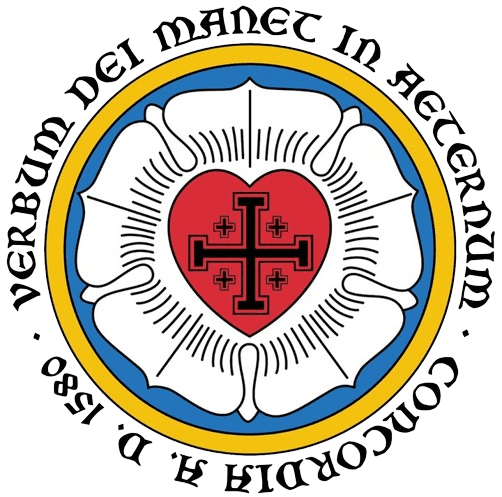1. Inasmuch as the examination of the monastic vows includes the subject of cloisters; tell me of what use were the cloisters at one time?
During the time of Augustine the cloisters were free colleges, or schools of Holy Scripture, and other studies, useful to the church, and from these the pastors and bishops were taken. (Augsburg Confession, Art. xxvii; Smalcald Articles, Part ii, Art. iii.)
2. But what are the monasteries and nunneries at the present day?
The Pope nowadays fetters the liberty of monastic life, with the bonds of vows, and makes real prisons of those colleges, pretending that grace and righteousness may be earned by this mode of life. Yea, he even proclaims that it is a state of perfection, which, being ordained of God, must be by far preferred to all other modes of life, most shamelessly asserting, that monastic vows are equal to baptism, yea, even better than it. (Smalcald Articles, Part ii, Art. xiv.)
3. What are these monastic vows?
Although there are three kinds of monastic vows, namely, chastity, poverty, and obedience, yet to the first, that is chastity or continence, they especially apply the name of vow.
4. What, then, do the Papists call vows?
Among the Papists this is and is called a vow, when the monks, after they have abjured marriage forever, obligate themselves to a life of celibacy, so that they, after this vow has once been made, can never exchange celibacy with married life on pain of everlasting punishment.
5. What do you think of these monastic vows?
That they are impious and vain. For, in the first place, God’s law commands, that those, who do not possess the gift of continence, shall contract marriage.
1 Cor. 7:12. “To avoid fornication, let every man have his own wife, and let every woman have her own husband.”
Then God’s creation and the order of this creation, constrains all those to marry, who do not possess the gift of continence.
Gen. 2:18. “It is not good that the man should be alone.”
Wherefore this higher and divine law must of right be preferred to the lower or human law, and those do not sin who obey the command and institution of God. For no vow can destroy God’s command and institution. (Augsburg Confession, Art. xxvii.)
6. Then these vows can be changed and broken?
Yes; “for the canons say that in every vow the higher law takes the precedence, how much less then ought they to bind and be valid contrary to the divine law? If these vows could not have been changed the Popes would not have issued dispensation against them; for no man has the right to rend asunder a duty which grows out of divine right.” (Augsburg Confession, Art. xxvii.)
7. Mention another reason confirming the abolition of such monastic vows.
In every vow, if it is to be firm and unchangeable, the nature of the vow must be regarded, namely, that it take place in a possible matter and in a proper manner. But in monastic vows nothing of this kind is observed. Therefore, they are of nought. That nothing of this kind is observed in monastic vows appears from the following:
- That it is in no man’s power to vow perpetual chastity.
- That but very few make this vow deliberately and of their own free will. For the young men and maidens are persuaded and sometimes even forced into this vow, before they have a judgment of their own. Hence, some canons and laws rescind those vows which are made under fifteen years; yea, another canon forbids the monastic vow to be made under eighteen years. (Augsburg Confession, Art. xxvii.)
8. Perhaps you can assign a third reason?
All worship rendered by man, instituted and selected without the divine injunction and commandment, in order to obtain righteousness and the grace of God, is contrary to God and the Gospel, and opposed to the commandment of God. As Christ himself says, Matt. 15:9, “But in vain they do worship me, teaching for doctrines the commandments of men.” St. Paul, too, everywhere teaches that we are not to seek righteousness and piety from our own observances and services which have been invented by men, but that righteousness and piety before God comes of faith and confidence, in that we believe that God receives us into grace for the sake of Christ. But now it is manifest that the monks have taught and preached, that an invented spirituality, and especially the monastic vows, render satisfaction for sin, and obtain God’s grace and righteousness. It, therefore, follows that such vows are wrong, and therefore vain services of God. They are, therefore, not binding. (Augsburg Confession, Art. xxvii.)
9. Then you maintain that no vow can be a divine service?
Under the Old Testament the mode of the vows had to be arranged according to certain laws, so that all were not permitted to vow what they pleased. And hence that could not be a divine service which was rendered by means of a vow. But in the New Covenant, where the entire manner of the divine service is included in the Word of God, vows cannot and dare not be regarded as divine service. For what is not commanded by God, but is done by the will of man, cannot be a service of God. Rom. 14:23: “For whatsoever is not of faith is sin.” (Apology, Art. xiii.)
Besides, no instance can be found in the New Testament, of God’s being pleased with vows, as an acceptable service. (Apology, Art. xiii.)
10. But can vows not be made at the present day, if one only do not connect the idea of merit, of divine service, and of necessity with them?
Yes, if they are made, in order that sins may be more carefully avoided, or that the business of one’s calling may be more faithfully transacted, or that other permitted objects, useful to church and state, may be attained; as if, for instance, some one vows to abstain from wine and play, because he sees that much injury arises to him and others from it, etc.
11. Can monastic life be referred to the evangelical counsels?
This too is false, that monastic life, such as chastity, voluntary poverty, and obedience, is a fulfilment of the counsels given in the Gospel. For the Gospel has nowhere advised such distinctions of dress and food, or the giving up of one’s own property. For these are purely human ordinances, of which St. Paul says:
1 Cor. 8:8: “But meat commendeth us not to God, etc.” Therefore they are not services, which make us pious before God, nor are they evangelical perfection. (Apology, Art. xiii.)
12. But what do you think of the vow of obedience, which Christ himself (Matt. 19:21) seems to place among the evangelical counsels?
The words of Christ are as follows: “If thou wilt be perfect, go and sell that thou hast and give it to the poor, and thou shalt have treasure in heaven; and come and follow me.” But by this he does not understand an obedience, which is assumed on human advice and will, but that which takes place according to every individual’s calling. (Apology, Art. xiii.)
13. How is this to be understood?
It must be so understood, that as calls are unlike, so also this call, of which Christ there speaks, is not for all persons, but only for that person, with whom Christ is there treating; just as we may not imitate the call of David to be a king, or of Abraham to sacrifice his son. (Apology, Art. xiii.)
14. How so?
Because an accurate distinction must be drawn between calls and obedience. For calls pertain to individuals, just as occupations themselves are different according to times and persons: but the example of obedience is general and concerns all men. Hence perfection would have become the portion of that young man, to whom Christ here speaks, if he had believed and obeyed this call. Thus it is sufficient for our perfection, if every one of us obey his own call in true faith.

